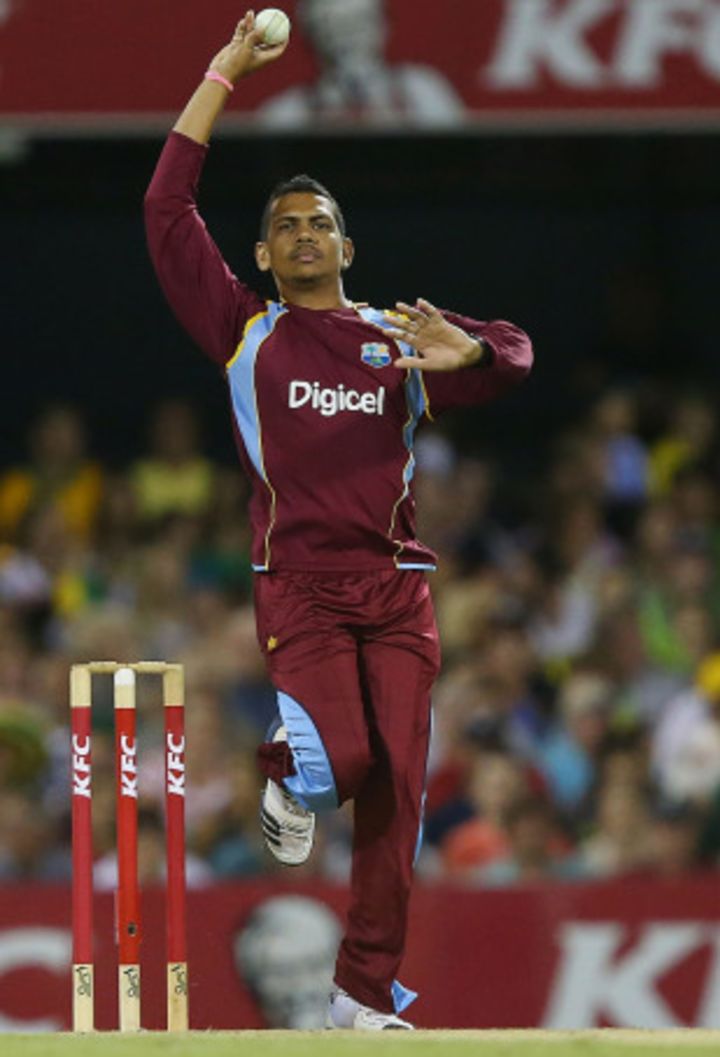Can West Indies' matchwinners fire as a unit?
West Indies enter this tournament with good memories from previous competitions. Their journey will be determined by the effectiveness of their matchwinners

Overview
There are many reasons why West Indies could be the most dangerous team in the tournament. Their strongest attribute is that they possess more than one matchwinner: Chris Gayle, Marlon Samuels, Kieron Pollard and Kemar Roach have the capability to overpower opposition. Sunil Narine plays a decisive role, especially during the final fifteen overs, including the batting Powerplay, when batsmen step on the accelerator.Their determination to hang in there to win the ICC World Twenty20 in Sri Lanka last year, where they lived on the edge on a few occasions, would have given them the self belief needed in big tournaments. However the challenge now is whether they can repeat that in England. They could certainly take solace in The Oval Miracle, where they fought back from 147 for 8, chasing England's 218, and ended up winning by two wickets in near twilight. That event was hosted in England as well, so West Indies can draw upon that memory for inspiration.
For them to win, the Big Five will have to stand up and lead. Gayle has said he wants to play deep into the innings. Samuels, one of Wisden's top five cricketers of 2013, will be the pivot between the top and lower order, and can also squeeze in a few overs as a spinner. Pollard needs to bring his world-class finishing skills, so effective in Twenty20 cricket, and perform on a consistent basis.
But the two people who can influence the team's belief will be the former and current captains: Dwayne Bravo and Darren Sammy. Bravo took over the ODI leadership from Sammy prior to this tournament, and has the respect of his players being the fourth senior-most member behind Gayle, Ramnaresh Sarwan and Samuels. More than his allround skills, it would be his leadership style that would determine the Windies approach. But unlike Sammy's animated approach, Bravo can be isolated at times. He needs to confide in Sammy when in a tight corner, and be flexible in changing plans whenever the going gets tough.
Key player
Despite his success in the Twenty20 format, Kieron Pollard has never managed to bring the matchwinner status he has established in tournaments like the IPL. However, his potential cannot be questioned. He has been West Indies' best ODI batsman since the 2011-12 season where he has scored 926 runs from 30 innings with three centuries (most by a West Indies batsman during this period). Pollard has the firepower to demolish the best bowling attack during the death overs and it will be in the role of finisher where he can help swing West Indies' fortunes. Pollard performed that role to perfection in Mumbai Indians winning their maiden IPL title last month. Pollard scored 250 runs in the last five overs, second only to MS Dhoni (286). Pollard's strike-rate was 10.06 runs an over in these overs, as he finished as the second best finisher in terms of runs. He hit 20 sixes in the last five overs of this IPL, most by any batsman, along with Rohit Sharma.Surprise package
At 6'8" tall, Jason Holder is the youngest in the Windies squad. But he resembles the famous breed of fast bowlers from the glory days of Caribbean cricket, when tall and gangly men could hit that unplayable length effortlessly, playing truant with the best batsmen. Holder's List A record is impressive with 29 wickets in 16 innings at an average of 20.24 and an economy-rate of 4.47. With his medium pace, and the bounce he can generate because of his stature, Holder could be a handy option, especially in the middle overs, a vital segment in ODIs where good batting teams gain the initiative.Weakness
Discipline and playing as a group. As they showed in their first warm-up match against Australia, the players can easily forget their plans. Initially Johnson Charles started aggressively, but failed to switch gears as the Australian bowlers found a rhythm. Luckily Darren Bravo played a mature innings to raise a platform for a 300-plus target, but the Windies batsmen panicked in their attempt to accelerate during the batting Powerplay, thereby finishing easily 30 runs short. Later, after Roach had put the Australians on the backfoot with an aggressive first spell, the rest of the bowlers, especially their captain Dwayne Bravo, failed to maintain the right lengths and lines for a sustained period, thereby allowing Shane Watson to dominate. Such dips in concentration can only negate all the hard work, so West Indies have no choice but to be more ruthless.Champions Trophy history
Their escape to victory at The Oval, on a dark Saturday evening late September in 2004 in the final against England was the highest point West Indies reached in their Champions Trophy journey. That triumph had come 25 years after Clive Lloyd had lifted the World Cup in 1979. Despite their decline in the longer format, West Indies have remained a surprising force to reckon with in the Champions Trophy, having made the finals thrice in the six editions. They reached the final in the inaugural Wills Trophy in Bangladesh in 1998, and made consecutive finals in 2004 and in 2006. In the 2009 edition in South Africa, they lost all three of their group matches.Recent form
Since the last Champions Trophy in October 2009, West Indies have only beaten one high-ranking country, New Zealand, which they won 4-1 last July. During the period they played 70 ODIs, winning just 27 while losing 40 including the quarter-final exit during the 2011 World Cup. Although they secured a 3-0 whitewash at home against Zimbabwe in their last ODI series, they would still remember the 5-0 humiliation in Australia at the beginning of 2013.Nagraj Gollapudi is an assistant editor at ESPNcricinfo
Read in App
Elevate your reading experience on ESPNcricinfo App.